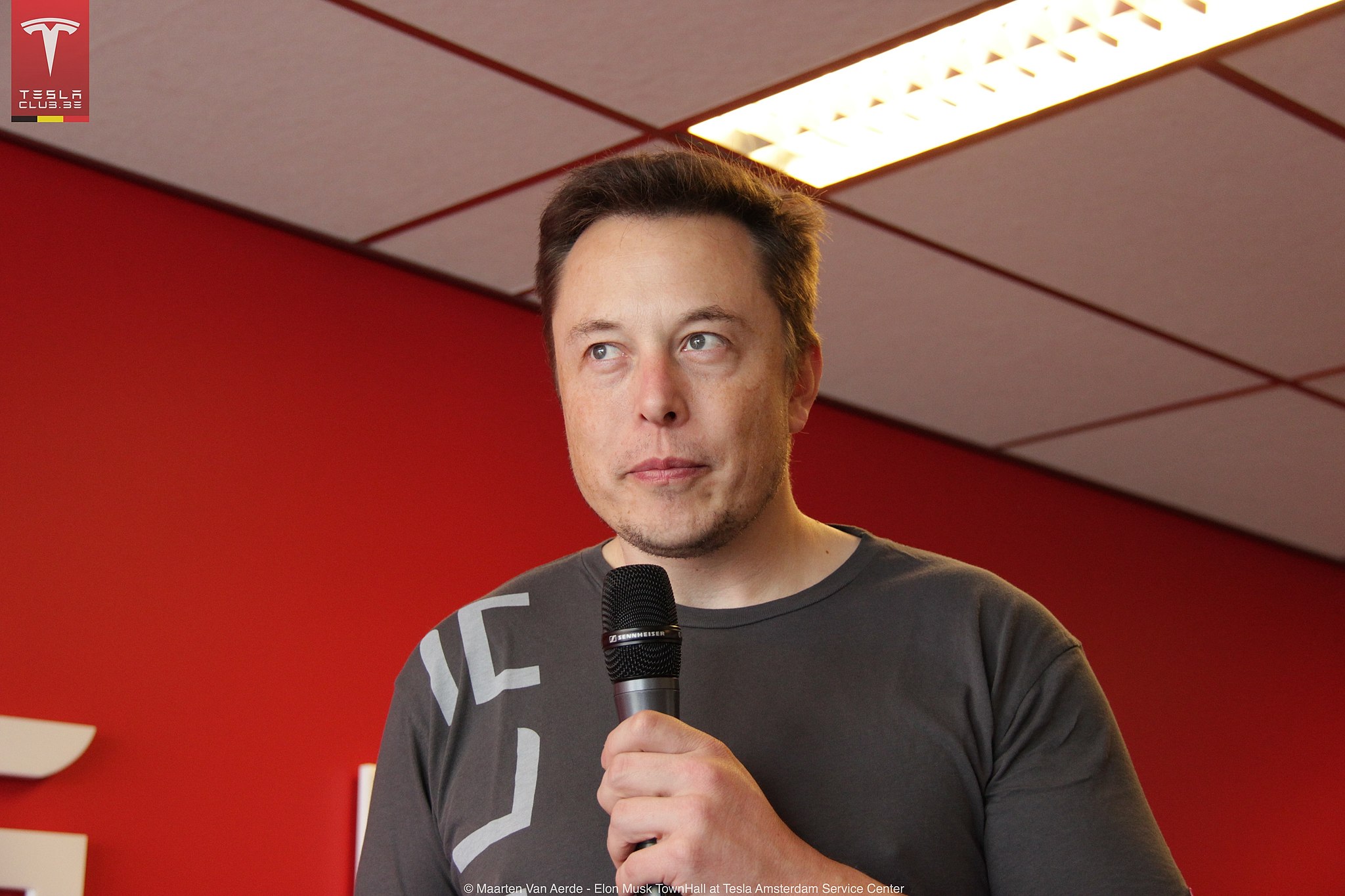On Friday evening, an American journalist by the name of Matt Taibbi posted a thread on Twitter revealing what he called the “Twitter Files.” These were emails that made up “the first instalment in a series, based upon thousands of internal documents obtained by sources at Twitter” that were meant to show that Twitter had actively interfered in the 2020 American presidenctial election.
1. Thread: THE TWITTER FILES
— Matt Taibbi (@mtaibbi) December 2, 2022
Those “sources,” perhaps unsurprisingly, are none other than Twitter’s newest CEO, Elon Musk himself. Musk announced the airing of the “instalment” beforehand and proceeded to stoke the flame of anticipation:
What really happened with the Hunter Biden story suppression by Twitter will be published on Twitter at 5pm ET!
— Elon Musk (@elonmusk) December 2, 2022
Under Musk’s new leadership, Twitter clearly wishes to atone for what it now views as previous sins.
The thread of tweets contained a series of emails from October 2020 that were sent to and from Twitter employees and external parties, including a Democratic congressman from California, Ro Khanna. Taibbi’s own commentary on the content and circumstances of the messages accompanied the series of tweets.
If you missed it: The saga of Hunter Biden’s laptop
In mid-October 2020, the New York Post reported that they had acquired the contents of a laptop allegedly owned by none other than Hunter Biden, the son of then-presidential candidate Joe Biden. At the time, Joe Biden was weeks away from the presidential election between himself and incumbent candidate Donald Trump.
According to the shop owner, the laptop had been left at a repair shop in Delaware in April 2019 by someone who claimed to be Hunter Biden but never returned to pick it up. The shop owner eventually alerted the FBI to his possession of the laptop after manually copying the contents of the hard drive and realising the sensitive nature of the information on it.
The FBI then seized the laptop under the authority of a subpoena related to an ongoing investigation over concerns that Hunter Biden had participated in tax evasion and money laundering through his business connections abroad.
It has never been confirmed that the laptop was in fact Hunter Biden’s; he himself has denied any memory of dropping it off for repairs in Delaware and forensic analysis of the device and its contents remains inconclusive. Nonetheless, the device contained emails addressed to and signed by Hunter Biden along with other digital files relating to him.
In addition to contacting the FBI, the owner of the repair shop contacted Rudy Giuliani, a longtime and prominent member of the Republican Party who has filled many shoes during his long and varied political career.
Giuliani was the mayor of New York City during the 9/11 attacks, a Republican presidential candidate in 2008, an active supporter of Trump’s 2016 presidential campaign, and Trump’s brief and informal cybersecurity advisor in 2017. At the time that he was contacted about the laptop, he was acting as part of then-President Trump’s personal legal team.
At some point, Steve Bannon, former chief strategist to then-President Trump, made the New York Post aware of the laptop’s existence, and delivered a copy of the hard drive to the outlet with Giuliani.
There have been equal parts controversy, speculation, and conspiracy about the unusual provenance of the information contained on the laptop. Questions about how exactly the data ended up in the hands of the political party who happened to be in the final stretch of a losing campaign against a candidate who would, they hoped, be implicated by its content have never been adequately answered.
The shop owner has offered different and contradictory accounts about why he involved a prominent member of the Republican Party in the matter.
The laptop itself contained emails between Hunter and some of his business associates from Burisma, a Ukrainian holding company for a group of energy exploration and production companies. Biden sat on the company’s board from 2014 to 2019, and his time there had prompted many of the accusations about tax evasion and money laundering abroad.
The most noteworthy of these correspondences was an email from a Burisma executive to Hunter Biden saying:
“Dear Hunter, thank you for inviting me to DC and giving an opportunity to meet your father and spent [sic] some time together. It’s realty [sic] an honor and pleasure.”
This sparked controversy because Joe Biden had previously claimed to have “never spoken to my son about his overseas business dealings.” Many interpreted this email as proof that Joe Biden was corruptly involved in his son’s foreign business affairs and had lied about it.
The laptop also contained sensitive data of a more personal nature, including explicit photos of Hunter Biden partaking in drug use and sexual activity.
The importance of the laptop’s contents has been interpreted differently by different parties but, although the contents themselves sparked multiple enquiries and plenty of outrage, it has not been proven to contain evidence of any illegal dealings by either President Joe Biden or his son.
Some view this whole sequence of events as a deliberate plot by Trump and his allies to conduct a last-minute smear campaign against Biden in the hope of destroying his chances in the 2020 election. Others view this story as evidence of foreign business dealings, corruption, and personal failings of Joe Biden that show he was ultimately unfit for the presidency.
So, how do Twitter and Elon fit into this?
The emails that were revealed on Twitter this week detailed some of the behind-the-scenes action taking place at Twitter whilst the news story about Hunter Biden’s laptop was breaking.
Twitter initially chose to suppress the story by using recommendation algorithms to push it down users’ feeds before banning links to the story outright under its distribution of hacked materials policy. Mark Zuckerberg, the CEO of Meta, also admitted recently that Facebook used its own series of tactics to prevent the story from spreading.
At the time, Twitter cited concerns over the laptop’s authenticity and the source of the information, fearing that it could have been the result of hacking.
https://twitter.com/TwitterSafety/status/1316525307441147907
In the lead-up to the 2020 election, Twitter and Facebook had both received general warnings from the FBI about the type of misinformation campaigns that were likely to spring up from foreign agents.
Zuckerberg said that Facebook’s choice to suppress the New York Post piece was a direct result of an FBI agent’s warning that the story about Hunter Biden’s laptop had the telltale signs of foreign interference.
The “Twitter Files” email that has drawn the most discussion since being posted shows a list of tweets that the Biden team requested to have removed followed by the unquestioning response that it had been “handled”:
8. By 2020, requests from connected actors to delete tweets were routine. One executive would write to another: “More to review from the Biden team.” The reply would come back: “Handled.” pic.twitter.com/mnv0YZI4af
— Matt Taibbi (@mtaibbi) December 2, 2022
It is worth remembering here that most of the tweets removed by Twitter at the request of Biden’s team were in fact breaking Twitter’s own rules about the nature of content allowed on their platform. Of the five tweets shown in the email, four were available in online archives, and each one depicted Hunter Biden naked. As these photos were being spread without the consent of Biden himself, it constituted a direct violation of Twitter’s non-consensual nudity policy.
Taibbi admitted that this method of “damage control” was being used by both parties, but included data that showed that Twitter contributed far more financial support to the Democratic Party than the Republican Party. He used this data to allege that favours from Twitter staff were being handed out disproportionately to Democratic candidates.
11. This system wasn't balanced. It was based on contacts. Because Twitter was and is overwhelmingly staffed by people of one political orientation, there were more channels, more ways to complain, open to the left (well, Democrats) than the right. https://t.co/sa1uVRNhuH pic.twitter.com/K1xmqQ0TrD
— Matt Taibbi (@mtaibbi) December 3, 2022
The second part of the Twitter thread details actions taken by the company’s employees to suppress the New York Post article itself. These actions include using the recommendation algorithm to push it down users’ feeds and moderating the link with content warnings that labelled it as “unsafe.”
Twitter ultimately banned the the story outright and froze accounts that shared the link.
This move affected the accounts of news outlets and politicians alike and caused widespread outcry at the time over Twitter’s heavy-handed content moderation. Just weeks earlier, in late-September, The New York Times had released a story about Donald Trump’s leaked tax information, which Twitter had allowed to circulate widely. This added to the general disbelief of Twitter’s story.
Twitter has since changed its Distribution of Hacked Materials policy. The Twitter’s policy chief, Vijaya Gadde said of the change:
“We want to address the concerns that there could be many unintended consequences to journalists, whistleblowers and others in ways that are contrary to Twitter’s purpose of serving the public conversation.”
So, what’s changing?
1. We will no longer remove hacked content unless it is directly shared by hackers or those acting in concert with them
2. We will label Tweets to provide context instead of blocking links from being shared on Twitter
— Vijaya Gadde (@vijaya) October 16, 2020
Eventually, the emails from within Twitter show employees descending into more frantic damage control, with some increasingly realising that they were going to face tough questions about the choice to exercise caution in this case due to the content and source of the story.
24. “They just freelanced it,” is how one former employee characterized the decision. “Hacking was the excuse, but within a few hours, pretty much everyone realized that wasn’t going to hold. But no one had the guts to reverse it.”
— Matt Taibbi (@mtaibbi) December 3, 2022
Their argument was essentially that the policy on hacking was being used preemptively. In their view, it was not yet clear that the files weren’t a result of hacking, so Twitter chose to play it safe and treat them as if they were, until evidence emerged to show the contrary.
Related Articles: Did Elon Musk Buy Twitter to Flirt With China and the Far-Right? | Twitter in Elon Musk’s Hands: What It Means |
Big Tech Layoffs in Europe: A Violation of EU Policy?
Eventually, the Federal Election Commission, an independent regulatory agency of the United States whose purpose is to enforce campaign finance law in federal elections, got involved.
In the aftermath, Twitter stuck to this argument – that the choice was due to an abundance of caution regarding hacked materials and not indicative of an overarching political agenda at Twitter or deliberate effort to meddle in the election. In response to its questions about the incident, parties stated on behalf of Twitter that:
“First… Twitter blocked potentially hacked content that contained private information such as email addresses, phone numbers, and personal photographs for bona fide commercial reasons and to enforce pre-existing Rules and policies intended to protect the safety, integrity, and commercial viability of its social media platform.”
In the same affidavit, Twitter defined the policies that had prompted the suppression of the article as “politically neutral.”
Part of the current uproar includes claims that these emails show that Twitter wilfully and knowingly lied to the FEC under oath. The current FEC Commissioner has even weighed in on the story:
Here's what Twitter told the @FEC in its response to a complaint about this event: "Twitter did not receive a request from the Biden campaign to review (much less restrict) the N.Y. Post articles. …" https://t.co/8Q08wkdcaQ
— Sean Cooksey (@SeanJCooksey) December 3, 2022
However, it is worth noting that the information that Cooksey provides in his Tweet does not disprove Twitter’s own statement under oath that it did not receive a request from the Biden campaign to review (much less restrict) the N.Y. Post articles.
The email from Biden’s team concerns individual tweets that were in violation of Twitter’s pre-existing policies. Some of this content was related to the content that formed part of the New York Post’s story, but the email does not actually reference or make any mention of the New York Post article itself.
People have also argued that these emails disprove Twitter’s claim that it chose to act out of commercial interest rather than political interest. On the contrary, none of the emails in Taibbi’s thread explicitly demonstrate a marked political motive.
Do they show executives being indecisive about the heavy-handedness of this application of their policy? Yes. Do they show that the obvious motive behind the suppression is a desire for Joe Biden to be president? No.
Nonetheless, the claim that these emails prove a concerted effort from Twitter to throw the platform’s weight behind one political party over the other is only one facet of the supposed scandal.
Do emails from Musk’s “Twitter Files” show violations of the first amendment?
The crux of the argument centres more broadly around the idea of “free speech” in America and how this interacts with Twitter’s deliberate choice to suppress a story that would have influenced voters in the very divisive upcoming presidential election.
Whatever the motives of the Twitter employees, it is clear that Twitter did have a hand in guiding the reception and spread of a controversial news story in the lead-up to a controversial election, an act which likely had an effect on the election itself. Some, including correspondents who engaged in the emails, have stated that this action violated the principles of the First Amendment:
32.Khanna tries to reroute the conversation to the First Amendment, mention of which is generally hard to find in the files: pic.twitter.com/Tq6l7VMuQL
— Matt Taibbi (@mtaibbi) December 3, 2022
Elon Musk himself labelled them as the “Twitter Files on free speech suppression.”
The Twitter Files on free speech suppression soon to be published on Twitter itself. The public deserves to know what really happened …
— Elon Musk (@elonmusk) November 28, 2022
The First Amendment to the United States Constitution, which regards freedom of speech, is this:
Congress shall make no law respecting an establishment of religion, or prohibiting the free exercise thereof; or abridging the freedom of speech, or of the press; or the right of the people peaceably to assemble, and to petition the Government for a redress of grievances.
Perhaps anyone who has visited the internet in recent years is more familiar with this concept from the popular line “that violates the First Amendment!”, which is used whenever anyone is criticised or punished for something that they’ve said.
If this isn’t a violation of the Constitution’s First Amendment, what is?
— Elon Musk (@elonmusk) December 3, 2022
It is becoming increasingly common for Americans to misunderstand the First Amendment as a carte blanche to say anything whatsoever without consequences, rather than recognising that the First Amendment only places strictures on the United States government and does not apply to private citizens or entities.
So, Twitter, as a private entity, attempted to make it very clear that its choices were commercially motivated rather than politically motivated. As much as Musk wants these emails to say otherwise, the truth of this is still up for debate.
Were individual employees possibly acting out of sheer fear that Donald Trump might be re-elected on the back of this scandal? It’s entirely possible and even probable.
Was Twitter as a private entity making moves that were coloured by overarching political motives? Who knows, but does it actually matter?
Twitter is and always has been a private company. Twitter has never been an arm of the government. Joe Biden was not the president of the United States when his “team” requested that tweets be removed, and the Democratic National Committee, who had a hand in requesting that tweets be removed as well, is also not a government entity, but a political party.
At no point in any of these events, did an agency of the United States government repress the free speech of private citizens.
The closest thing to a violation of the First Amendment that occurred was Congress Member Ro Khanna asking for a private business to change the content available on its platform which, ironically, he claimed to do in the name of the First Amendment.
Even Zuckerberg has claimed that the FBI’s hand in Facebook’s suppression of the article amounted to a warning. The Bureau has since publicly clarified that they can, and often do, inform these platforms of possible threats from foreign actors but cannot require that they take action. Whether this is true is anyone’s guess.
And if Twitter did go into the 2020 election with the clear purpose of helping Joe Biden win, is that illegal? In what way would that be different from a local business owner putting up a “Trump 2020” sign on their storefront because they believe that the Republican Party will help their business by cutting taxes?
In fact, if Twitter had chosen not to spread a story that went against its own political motives, that would be an example of Twitter exercising its own right to free speech. If a user disagrees with Twitter’s politics, just like they might disagree with the politics of their locally-owned pro-Trump business, they are always welcome not to use the platform.
The argument against this viewpoint is that Twitter and the likes are now so large and so ubiquitous that access to them represents a right in and of itself. Being “deplatformed” is considered a violation of rights because, in theory, someone becomes a de facto second-class citizen if denied access to these spaces.
The public space of the “Town Hall” has been relegated to obsolescence, and the purpose that was once served by public entities is now served by privately held platforms that exist to capitalise off of its users.
So, surely the real problem is not businesses acting like businesses in a capitalist system, but society’s willful ignorance to and misinterpretation of these businesses’ ultimate aims and goals. Society continues to become more addicted to and more reliant on social media platforms whilst burying their heads in the sand about the true interests and purposes of these businesses.
Was Twitter acting against the public interest by suppressing the story? Possibly. Do all of the social media giants that now run our lives act against the public interest most of the time? Yes.
It has been proven over and over again that these social media giants do not have the best interests of its users at heart.
The overuse of social media has been pretty clearly associated with suicide rates and mental health disorders in adolescents, and documents were leaked last year that Facebook knew this.
Addiction to social media is also a real problem in many people’s lives and one that these platforms continue to exploit, because the more people use them, the more money the business makes. Nearly all of the social media giants have had to testify over the addictive nature of the algorithms that feed their platforms.
This means that social media also routinely creates echo chambers based on the content with which a user interacts and feeds them more of it to keep them interested. The correlation between these echo chambers and radicalisation is noteworthy. A study has argued that “social media factored into the radicalization of 50.15% of individuals who were members of extremist groups or radical cliques.” Facebook also knew about this.
If society chooses en-masse to have the discussions and arguments that theoretically underpin our democratic systems on private, capitalistic platforms that have their own political agendas because they are ultimately money-making enterprises and not neutral and benevolent entities that aim to further society’s progress, then perhaps it is the fault of society when that democratic landscape becomes so fragile that one choice by one company has the power to demonstrably impact a country’s future.
In recent months, America has taken steps to limit the influence that Chinese social media giant TikTok has in America because people have recognised the potential for harm that the platform poses to democracy. Why does TikTok pose more of a potential threat to the United States than our own home-grown social media giants? Is it anti-American to believe that any idea resulting from our own marketplace of ideas could possibly harm its citizens and democracy?
Perhaps rather than pointing fingers at some random Twitter employees for the state of our country, who were clearly acting more out of indecision than active malice, we should face the mirror ourselves and question why we as a society allow one or two platforms to hold such sway over the democratic systems that are supposed to preserve our freedom.
Editor’s Note: The opinions expressed here by the authors are their own, not those of Impakter.com — In the Featured Photo: Twitter app loading on a photo. Featured Photo Credit: Akshar Dave.














